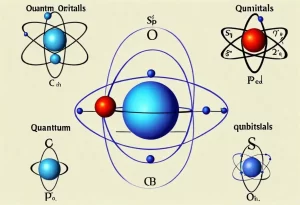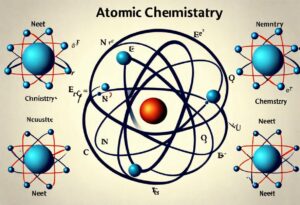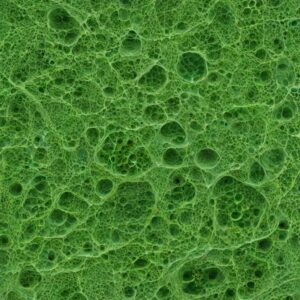
Learn How to Study Chemistry in 10 Easy Steps
Learn How to Study Chemistry in 10 Easy Steps Chemistry, as a subject, can be quite challenging to understand owing to the numerous theoretical principles
Overall, preparing for the NEET exam becomes important for students who want to take up medicine as their career. Throughout the subjects studied, chemistry usually appears to be one such important subject that many students struggle with, and it has three major segments: Inorganic Chemistry, Organic Chemistry, and Physical Chemistry. This blog, therefore, highlights the NEET Chemistry syllabus 2025 and further explains it in portions so as to make it easier for students to prepare for this subject.
NEET Chemistry’s significance is that it creates strong supporting conditions in the other subjects that are eligible for admission into medical programs, including Biology and Physics. Thus, this, combined with NEET Biology and Physics, allows for inserting bolts into other subjects as well. The NEET Chemistry syllabus 2025 holds 25% weightage, i.e., 180 marks. To begin any preparation, it suffices to possess an understanding of the syllabus, which will be followed at length.
The NEET Chemistry syllabus for the year 2025 will cover the syllabus pertaining to chemistry from the NCERT textbooks of both Class 11 and Class 12 for evaluating a student’s scientific principles over understanding application. The three sections constitute an essential part of the question paper and have considerable weight in the NEET exam. The NEET organic chemistry syllabus essentially prepares the student for a solid medical foundation. It covers a plethora of topics, so that students can well prepare to answer different varied questions thrown up in the NEET exam.
Here’s an overview of the class 11 and 12 chemistry syllabus:
Check this table below:
| Some Basic Concepts of Chemistry | Structure of Atom |
Classification of Elements and Periodicity in Properties
|
|
Chemical Bonding and Molecular Structure
|
States of Matter: Gases and Liquids | Thermodynamics |
| Equilibrium | Redox Reactions | Hydrogen |
| S-Block Element | Some P Block Elements | Organic Chemistry – Some Basic Principles and techniques |
| Hydrocarbons | Environmental Chemistry | |
| Solid State | Solutions | ElectroChemistry | Chemical Kinetics |
| Surface Chemistry | General Principles and processes of Isolation Elements | P-Block Elements | D and F Block Elements |
| Coordination Compounds | Haloalkanes and Haloarenes | Alcohols, Phenols and Ethers | Aldehydes, Ketones and Carboxylic Acids |
| Organic Compounds containing Nitrogen | Biomolecules | Polymers | Chemistry in Everyday Life |
This year, the National Medical Commission (NMC) changed and released the NEET Chemistry syllabus rather than the National Testing Agency (NTA). NMC has decreased the syllabus. It has removed the following chapters from chemistry:
| Categories | Deleted from Class 11 Chemistry | Deleted from Class 12 Chemistry |
| Physical Chemistry | States of Matter | Solid State |
| Surface Chemistry | ||
| Inorganic Chemistry | Hydrogen | Metallurgy |
| S-Block | ||
| Organic Chemistry | Environmental Chemistry | Polymers |
| Chemistry in Everyday Life |
It includes the following additions:
Note: It is recommended that students study the P-block part using old NCERT books.
The NEET chemistry syllabus has three broad sections: physical, organic chemistry for NEET, and inorganic chemistry. Each section is emphasized on particular topics, whereas they test on various fronts of students’ knowledge as well as skills. The study of weightage and concentration of each section aids in allotting time for studies efficiently and thus ensuring even preparation. We will now discuss each section in detail to know what it has to offer in terms of topics and the significance attached to them.
Physical chemistry revolves around the quantitative and experimental aspects of chemistry. The key chapters include:
| PHYSICAL CHEMISTRY |
| Unit 1- Some Basic Concepts of Chemistry |
| Unit 2- Atomic Structure |
| Unit 3- Chemical Bonding and Molecular Structure |
| Unit 4- Chemical Thermodynamics |
| Unit 5- Solutions |
| Unit 6- Equilibrium |
| Unit 7- Redox Reaction and Electrochemistry |
| Unit 8- Chemical Kinetics |
This involves topics like d- and f-block elements, coordination compounds, classification of elements, and periodicity in properties. Students need to grasp periodic trends, chemical bonding, and elements and their compound properties for this section, which requires good memorization and theoretical applicability in solving questions.
| INORGANIC CHEMISTRY |
| Unit 9- Classification of Elements and Periodicity in Properties |
| Unit 10- p-Block Elements |
| Unit 11- d and f Block Elements |
| Unit 12- Coordination Compounds |
Organic chemistry is the most challenging yet interesting part of the syllabus. Organic chemistry weightage in NEET carries substantial weight in NEET, with questions ranging from reaction mechanisms to name reactions. Approximately 14–16 questions in the NEET Chemistry section are dedicated to organic chemistry. The main organic chemistry chapters for NEET in this part include:
| ORGANIC CHEMISTRY |
| Unit 13- Purification and Characterisation of Organic Compounds |
| Unit 14- Organic Chemistry- Some Basic Principles and Techniques |
| Unit 15- Hydrocarbons |
| Unit 16- Organic Compounds Containing Halogens |
| Unit 17- Organic Compounds Containing Oxygen |
| Unit 18- Organic Compounds Containing Nitrogen |
| Unit 19- Biomolecules |
| Unit 20- Principles related to Practical Chemistry |
Here is what knowing the NEET Chemistry syllabus chapter-wise weightage 2025 does: it helps prioritize your study planning. When you know important topics, you can maximize where you spend your efforts. By using the weightage to determine how much time you devote to different aspects of study, you will be thorough in all essential areas and well-prepared for the exam.
NEET Chemistry Syllabus Class 11
| CHAPTERS | WEIGHTAGE % |
| Basic Concepts of Chemistry | 1 |
| Structure of Atom | 2 |
| Classification of Elements & Periodicity in Properties | 2 |
| Chemical Bonding and Molecular Structure | 5 |
| States of Matter: Gases and Liquids | 2 |
| Thermodynamics | 8 |
| Equilibrium | 6 |
| Redox Reactions | 3 |
| Hydrogen | |
| s-Block Elements | 2 |
| Some p-Block Elements | 2 |
| Organic Chemistry: Basic Principles & Techniques | 4 |
| Hydrocarbons | 3 |
| Environmental Chemistry | 2 |
NEET Chemistry Syllabus Class 12
| CHAPTERS | WEIGHTAGE % |
| Solid State | 2 |
| Solutions | 5 |
| Electrochemistry | 2 |
| Chemical Kinetics | 3 |
| Surface Chemistry | 2 |
| Isolation of Elements | 2 |
| p-Block Elements | 5 |
| d- and f-Block Elements | 4 |
| Coordination Compounds | 9 |
| Haloalkanes and Haloarenes | 3 |
| Alcohols, Phenols and Ethers | 4 |
| Aldehydes, Ketones and Carboxylic Acids | 4 |
| Organic Compounds containing Nitrogen | 2 |
| Biomolecules | 3 |
| Polymers | 3 |
| Chemistry in Everyday Life | 2 |
NEET Chemistry syllabus for 2025 is huge, with more areas being covered. There should be effective and proportionate preparation to excel in this section. Concentrate on NCERT, practice as much as possible, and manage time wisely across all three segments. With consistent effort and dedication, you can master the syllabus and secure a high score in NEET. Prepare yourself well and go for the highest!

Learn How to Study Chemistry in 10 Easy Steps Chemistry, as a subject, can be quite challenging to understand owing to the numerous theoretical principles

Unlocking Success in AP Chemistry: The Ultimate Guide to Online AP Chemistry Tutoring with Chemistrybench Advanced Placement (AP) Chemistry is a challenging course that demands

How to Completely Cover the IB Chemistry Syllabus ? The IB Chem syllabus is not one of the most encouraging notes one would want to

Atomic Structure: NEET Chemistry Notes – Part 1 Grasping the Basics of Atomic Structure: Required for NEET Chemistry Basics of Atomic Structure Atomic size is

IB Chemistry Tutors | Online IB Tuition Classes – Chemistry Bench INDEX IB Chemistry Tutors Introduction to IB Chemistry Role of IB Chemistry Tutors Benefits

Matter and it’s Nature Class-11 Chemistry Notes for IIT-JEE and NEET Introduction Human beings have observed different forms of matter through the ages. Matter exists everywhere, from
Chemistry Bench is an online chemistry tutoring platform that provides tutoring for various chemistry courses and curricula on the national and international levels.
Subscribe now to receive our latest updates, Courses, and Exam Tips.
Social Chat is free, download and try it now here!
